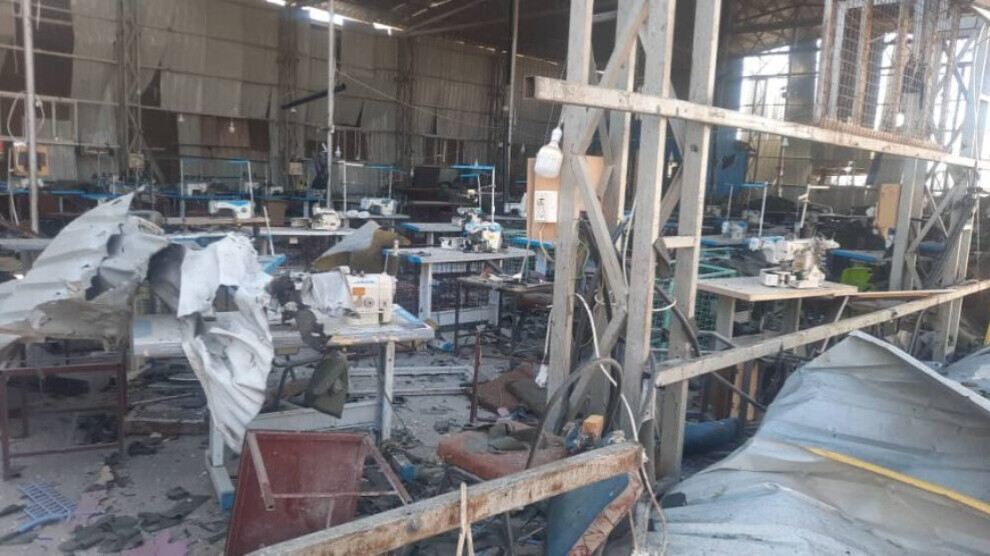AANES announces the balance sheet of Turkish attacks
Thousands of villages in north-east Syria are left without electricity following massive Turkish airstrikes on the energy infrastructure, which also left 8 people dead and 18 others wounded.
Thousands of villages in north-east Syria are left without electricity following massive Turkish airstrikes on the energy infrastructure, which also left 8 people dead and 18 others wounded.

Thousands of villages in north-east Syria are left without electricity following the massive Turkish airstrikes on the energy infrastructure. "More than 2,600 villages are currently cut off from the power supply as the Turkish state continues to attack the important infrastructure of our regions," the Autonomous Administration of North and East Syria (AANES) announced in a statement on Tuesday.
The cities of Dêrik, Tirbespiyê and Çil Axa were the worst affected by the attacks. Virtually all villages and towns were cut off from the outside world, according to AANES. Among other things, an oil refinery and fuel distribution stations were attacked on Saturday. Other settlements were affected in the surrounding area of Qamishlo. In October, countless people in the north-east Syrian autonomous region had already been left without electricity due to Turkish attacks.
AANES also published figures on the attacks on Saturday and Monday. Accordingly, 40 air strikes were recorded in various regions of north-east Syria. Seven of these were carried out by Turkish warplanes, the remaining 33 by killer drones. Most of the airstrikes, 31 in total, were directed against Qamishlo, where various businesses, factories, petrol stations and a marketplace were bombed. The Sîmav printing house, which lost six members of its workforce, and the grounds of the Corona Hospital were also hit. The dialysis centre and the bottling plant for medical oxygen were destroyed.
The Turkish aircraft also targeted medical infrastructure in Kobanê, where the site of a health centre on Miştenûr Hill came under fire. Until 2019, the station was operated by Doctors Without Borders. The site is now under the responsibility of the Kurdish Red Crescent organisation Heyva Sor a Kurd.
According to AANES, Kobanê was hit by a total of six Turkish attacks the previous day. Further attacks affected the town of Amûdê, where a wedding hall, a grain silo and an olive processing factory were bombed. The attacks resulted in eight dead and 18 injured.
While all those killed and injured were civilians, the Turkish state claims that it is only taking action against "terrorists". Turkey uses the UN Charter as legal cover for its war crimes in northern and eastern Syria, which are intended as "retribution" for the deaths of several soldiers killed by Kurdish guerrillas during "cross-border operations" by the Turkish army in Iraq. Ankara justifies its state terror with reference to Article 51 of the UN Charter, which regulates a country's right to self-defence. Under international law, however, there is no right to retaliation. Nevertheless, as usual, there is no international reaction. Erdoğan has a free hand to commit war crimes against Kurds. In recent days, his army has also carried out airstrikes in the Kurdistan region of Iraq.